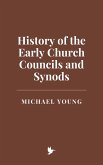As the Church grew, the leadership began to formalize through the Ecumenical Councils, which resolved critical theological disputes and established foundational doctrines, such as the nature of Christ and the Trinity. The tension between mysticism and institutional authority, the rise of monasticism, and the centralization of papal power are also explored in depth, demonstrating how Christian leaders balanced spiritual authority with political influence.
The book further addresses the significant shifts in Christian leadership during the medieval period, with the rise of the papacy as the supreme authority in the Western Church, the influence of monastic movements, and the growth of scholastic theology. It concludes by examining the crisis of leadership during the Avignon Papacy and the groundwork laid for the Protestant Reformation.
Throughout, the book highlights the dynamic interaction between Christian leaders and the broader social, political, and theological contexts, emphasizing how leadership decisions shaped the development of Christian doctrine, governance, and practice. It provides a rich historical account of Christian leadership, offering insights into how the Church navigated the challenges of growth, conflict, and reform, ultimately shaping the trajectory of Christianity in the Western world.
Dieser Download kann aus rechtlichen Gründen nur mit Rechnungsadresse in A, B, CY, CZ, D, DK, EW, E, FIN, F, GR, H, IRL, I, LT, L, LR, M, NL, PL, P, R, S, SLO, SK ausgeliefert werden.









